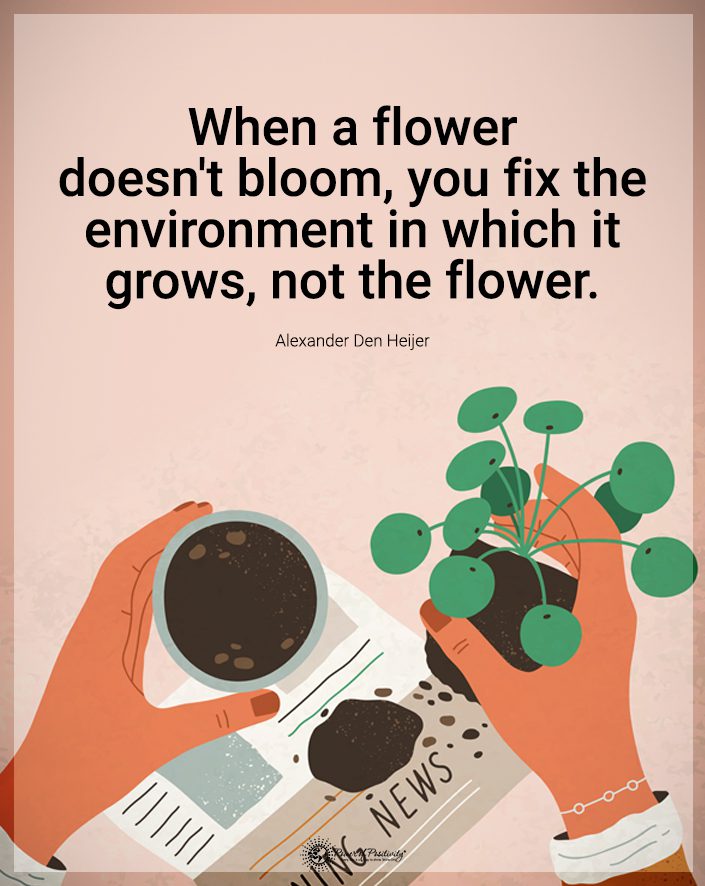These phrases reveal narcissistic manipulations.
Narcissists are like expert gardeners, meticulously cultivating an environment where their needs and desires bloom extravagantly. Their narcissistic manipulations often lead to overshadowing the growth of others.
They also sow seeds of discord, water them with manipulation, and bask in the sunlight of attention. Even as they do this, the foliage of their companions withers in a toxic soil of neglect and self-doubt.
Recognizing a narcissist’s subtle yet insidious tactics is paramount in safeguarding one’s emotional well-being. It also ensures that the garden of self-worth remains untainted by the invasive weeds of manipulation.
Why Do Narcissists Get Away With Everything in Relationships?
Narcissism, rooted in Greek mythology and characterized by excessive self-interest, often masks a fragile self-esteem vulnerable to even the slightest criticism.
In relationships, narcissists often employ manipulative statements to maintain control, deflect responsibility, and safeguard their inflated egos. These statements may seem harmless or even empathetic on the surface. But narcissistic personality disorder can also undermine, gaslight, and destabilize the recipient, ensuring the narcissist can continue to bask in their self-constructed, superior light.
Here are the things narcissists say that help them get away with everything:

1 – “I never said that.”
The delicate art of gaslighting is a narcissist’s forte. It works because it subtly alters the reality to sow seeds of doubt within your mind. When a narcissist utters, “I never said that,” they are meticulously pruning away your trust in your memory and perception.
This statement is not merely a denial but a calculated move to destabilize your confidence in your recollections, fostering a dependency on their version of events. The impact is profound as the victim begins questioning their sanity, increasingly relying on the narcissist’s narrative to define their reality.
How to counteract this narcissistic manipulation:
Responding to this language requires trust in your own experiences. It also means maintaining records of interactions to validate your recollections whenever possible.
2 – “You’re too sensitive.”
Picture a narcissist gently plucking at the petals of your self-esteem, each utterance of “You’re too sensitive” dislodging a piece of your self-worth. This statement is a masterful invalidation technique, dismissing your emotions and experiences as irrational or exaggerated. It’s a subtle yet potent pesticide, eroding the roots of your emotional stability and self-belief. The impact is twofold. Not only does it belittle your feelings, but it also deflects from the narcissist’s behavior, ensuring they avoid accountability for their actions.
Counteracting this statement involves:
- Affirming the validity of your emotions.
- Establishing emotional boundaries.
- Refusing to allow your feelings to be dismissed or minimized.
3. “I’m sorry you feel that way.”
Navigating through the thorny path of a narcissist’s apology, one often encounters the pseudo-compassionate “I’m sorry you feel that way.”
This non-apology subtly shifts the blame onto the recipient, implying that the issue is not the narcissist’s actions but the victim’s emotional response. It’s a crafty evasion. That’s because it allows them to appear empathetic while sidestepping accountability.
How to push back against this narcissistic statement:
Recognizing the absence of responsibility in such apologies and assertively communicating the need for genuine accountability and remorse is necessary. Do not accept a false apology or surrender your peace of mind.
4. “You’re overreacting.”
The narcissist often employs “You’re overreacting” to manipulate the strings of your self-perception. This statement seeks to minimize your emotions and experiences. In fact, it makes them seem irrational or disproportionate.
It’s a strategic move to divert attention from their behavior, instead spotlighting your reaction as the problem.
The victim, now in the defensive position, may internalize this belief. Thus, it may erode their trust in their emotional responses.
How to counter this statement made by narcissists:
Countering this accusation involves trusting your instincts, validating your feelings, and resisting the pull to internalize the narcissist’s diminishing view of your emotional landscape.
5. “I do so much for you.”
When a narcissist proclaims, “I do so much for you,” it’s akin to them weaving a web in which gratitude and guilt often co-mingle. This statement is a subtle form of guilt-tripping, where the narcissist tallies their deeds, presenting themselves as the benevolent giver and you, implicitly, as the indebted receiver.
The underlying implication is a skewed balance of reciprocity, where you are perpetually in debt, justifying their demands or transgressions.
Countering this phrase:
Reminding the person about mutual contributions within the relationship and rejecting the imposition of undue guilt or obligation is the best defense against this statement. Know your worth – and assert it!
6. “If you loved me, you would…”
The narcissistic person, wielding love as their weapon, often deploys, “If you loved me, you would…” to pierce through your defenses. This statement is a classic example of emotional blackmail, where love is contingent upon compliance.
The narcissist sets a stage where your actions, or lack thereof, are portrayed as a measure of your love and commitment, coercing you into bending your will. The impact is a perpetual dance to prove your love, often at the expense of your boundaries and values.
Pushing back on this narcissistic manipulation involves:
- Establishing firm boundaries.
- Recognizing that love should not be conditional upon compliance.
- Resisting the narcissist’s attempts to define your love through your acquiescence.
7. “Nobody else would put up with you.”
The haunting whisper, “Nobody else would put up with you,” is a narcissist’s attempt to plant the seeds of self-doubt and fear within the fertile grounds of your self-worth. This statement seeks to isolate you, suggesting that you are inherently unlovable or burdensome, save for the narcissist’s ‘unique’ tolerance. The impact is a gnawing fear of abandonment and a diminishing sense of worth, tethering you closer to the narcissist as your perceived sanctuary.
Counteracting narcissists who say this involves:
- Recognizing and affirming your intrinsic value.
- Understanding that worth is not determined by the narcissist’s appraisal.
- Embracing the knowledge that healthy, supportive relationships await beyond their confining walls.
8. “You always/never do this.”
With the utterance of “You always/never do this,” the narcissist skillfully paints your character with broad, unyielding strokes of negativity. Employing absolute terms, they generalize a single instance or few occurrences as emblematic of your entire character, thereby framing you as perpetually at fault. This tactic deflects from their actions, perpetuating your defensive stance and often conceding to their perspective to quell the conflict.
How to counter narcissists who say this:
Counteracting narcissists who say this must include refuting unjust absolutes. It should also rely on counter-examples and maintain a balanced perspective of your actions and character. You must remain unswayed by the narcissist’s skewed portrayal.
9. “I’m the victim here.”
When narcissists say, “I’m the victim here,” they cunningly flip the script, morphing from the perpetrator to the aggrieved.
This statement is a diversionary tactic designed to shift the spotlight away from their actions and onto their supposed suffering. The impact is a derailment of the original issue and a forced focus on assuaging their feigned hurt, thereby sidestepping accountability.
Pushing back when narcissists claim this:
It is vital to focus on the original concern, resist being pulled into their victim narrative, and assertively communicate the need to address the initial point of contention.
10. “You owe me.”
The proclamation, “You owe me,” is a narcissist’s method of establishing a perpetual debt, ensuring a sense of obligation binds you. This statement creates a transactional dynamic where the narcissist keeps a mental ledger of their deeds, expecting reciprocation in compliance, favors, or avoidance of accountability. The impact is a perpetual imbalance, where you are always in debt, justifying their demands and expectations.
Counteracting this narcissistic manipulation involves the following:
- Recognizing and rejecting manipulative debts.
- Establishing a relationship dynamic based on mutual respect and equality.
- Refusing to be bound by manufactured obligations.
11. “It’s just a joke.”
When a narcissist veils their barbs with “It’s just a joke,” they cunningly disguise their insults, belittlement, or critical remarks under the guise of humor. This statement diminishes your feelings and reactions, suggesting you lack humor or understanding. The impact is twofold: it allows the narcissist to deliver hurtful comments while simultaneously invalidating your emotional response to them.
How to counteract narcissists who claim this:
Identifying and addressing the hidden insults is essential, refusing to allow the narcissist to escape accountability for their harmful words under the pretense of jest.
12. “You don’t understand me.”
The lament, “You don’t understand me,” is a narcissist’s attempt to portray themselves as misunderstood, complex individuals, alienating and confounding you. This statement implies that your inability to comprehend their depth or complexity is a failing on your part, often making you strive harder to please or understand them. The impact is a perpetual chase, where you constantly try to meet their elusive emotional needs, often at your own expense.
How to stand your ground when narcissists say this:
Counteracting involves recognizing this tactic as a form of emotional isolation. So maintain a balanced perspective on mutual understanding in the relationship, and ensure your emotional needs in the pursuit of understanding them.
13. “It’s your fault.”
When a narcissist asserts, “It’s your fault,” they skillfully shift the blame, ensuring the spotlight of guilt shines brightly upon you. This statement is a deflection tactic designed to avoid taking responsibility for their actions and, instead, burdening you with guilt and accountability. The impact is a heavy load of undue guilt and a constant state of defense as you navigate through the minefield of their projected blame.
Counteracting these narcissists involves:
- Identifying and rejecting inappropriate blame.
- Maintaining a clear perspective on responsibility.
- Refusing to shoulder the guilt for the narcissist’s actions and choices.
14. “You can trust me.”
With the assurance, “You can trust me,” a narcissist seeks to establish a façade of reliability, encouraging you to lower your defenses and confide in them. While seemingly genuine, this statement is often a ploy to gather information for manipulation or control. The impact is a vulnerability that becomes weaponized, as the narcissist utilizes your confidence against you in moments of conflict or to maintain control.
Counteracting this narcissistic manipulation means:
- Evaluating trustworthiness through consistent actions.
- Maintaining healthy boundaries around personal information.
- Ensuring that trust is mutually established and respected within the relationship.
15. “I can change.”
The promise, “I can change,” often emerges from a narcissist’s lips as a shimmering ray of hope. This statement usually comes in moments of conflict or when the narcissist senses they may lose their grip on the relationship.
It dangles the prospect of transformation and resolution, enticing you to remain invested in the relationship. The impact is a perpetual cycle of hope and disappointment, as the promised change is seldom realized or sustained.
Countering narcissists usually involves:
- Assessing change through sustained
- Tangible actions
- Maintaining realistic expectations regarding transformation
- Ensuring that your commitment does not connect to the elusive promise of their metamorphosis.
Final Thoughts on Knowing the Things Narcissists Say to Manipulate and Get Their Own Way
A relationship with a narcissist means that every romantic blossom may conceal a thorn of manipulation or deceit. Thus, it also demands awareness, understanding, and self-assurance. Though often masquerading as genuine communication, the manipulative statements are, in reality, the narcissist’s insidious seeds. Indeed, they sow them to control, dominate, and ensure their needs, desires, and ego perpetually overshadow everything. In this lush landscape, withstanding narcissistic manipulation requires us to fortify our roots. Thus, we can ensure we thrive amidst the invasive weeds of narcissistic manipulation.
Understanding the underlying implications of these statements is not merely an exercise in psychology but a vital armor in protecting oneself from the emotional and psychological toll that such interactions can exact. Recognizing these tactics, validating one’s own experiences and emotions, and maintaining firm boundaries are pivotal in ensuring that the narcissist’s manipulative weeds do not take root in the fertile soil of your self-worth and emotional well-being.
So, let us carry forward the knowledge that recognizing and understanding manipulation is the first step toward empowerment. Indeed, the beacon can guide us through the fog of deceit. It can also allow us to navigate toward relationships with mutual respect, understanding, and genuine care.
May this guide serve as a resource in your journey, illuminating the path towards healthier relational dynamics and providing a shield against the insidious manipulations that narcissists employ. Remember, in the lush garden of relationships, your well-being, emotions, and self-worth are flowers that deserve to bloom vibrantly, unencumbered by the shadow of manipulation and control.


















